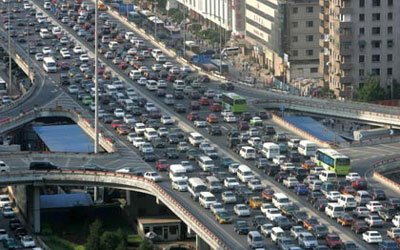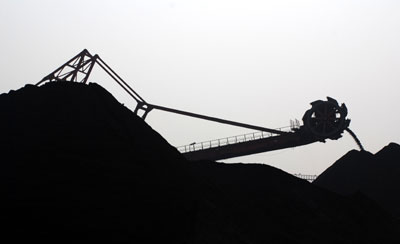

What China Needs is a "Total Strategy"
Observer, page 44
By Ding Li, Senior Editor with the Economic Observer
~ A total strategy is one that encompasses domestic policy, foreign policy, economics, the military, social reform, and every sphere of society. It is not a five-year plan; it outlines a cohesive national direction without jeopardizing individual freedoms.
~ First, China cannot continue to be a source of cheap labor for other countries; national policy should reflect the interests of the Chinese, not foreign governments.
~ Second, we must strive to build amicable relationships with neighboring countries. China's military prowess is undeniable, but if neighboring countries feel threatened, they will band together against China.
~ Furthermore, China should not rely on direct foreign aid. The country must encourage free-market activity conducive to long-term economic development.
~ The Chinese military expert Jiang Baili 蔣百里 (1882-1938) said that total war included peace. We saw this during the Cold War, and we see it in China's present situation. Total war requires "total strategy," that synergizes every aspect of national development.
~ During WWII, Japan stretched itself too thin and pushed their imperialist ambitions too far; by the time they bombed Pearl Harbor, the war was already out of control. China should learn this broader strategic lesson.
~ China is in a period of growth and "transition." We should not alienate our neighbors and make unnecessary enemies nor should we push economic growth beyond its natural course against the interests of the people. Given time, China will mature and thrive.
Original article: [Chinese]

Should we Blame China's Ministry of Railways for Beijing's Clogged Highways?
EO Online
By Chen Tairan, Beijing-based Media Commentator
~ Thanks to a coordinated effort on the part of the public security bureau and the traffic police, the huge traffic jam that clogged a section of the Beijing-Tibet highway on the western approach to the capital for the past half a month, has abated.
~ Though many commentators have attributed the traffic congestion to poor transport management and China's economic reliance on coal (many of the vehicles clogging the roads were trucks carrying coal from Inner Mongolia and Shanxi to eastern ports), I think we need to consider why so much coal is being transported by road and not rail.
~ It costs twice as much to transport coal by road than by rail.
~ We often hear explanations claiming that China's railways are overloaded and are unable to transport any more freight, to what degree is this true and if so what has caused this situation?
~ China's railway network has failed to keep up with the huge jump in the amount of goods being produced and transported in regional China which has meant that pressure is now being put on the country's highway system.
~ The transportation of coal should be a focus of the country's railways, but the appearance of this huge traffic jam near Beijing should serve as an embarrassing reminder to the Ministry of Railways that it has failed in its duties, especially given the recent investment of 1.3 trillion yuan in the construction of a national high-speed rail network.
~ As trillions are spent on high-profile high-speed rail projects that are "the fastest in the world," freight transport is overlooked.
~ This is not to say we shouldn't be constructing high-speed rail projects, but rather, that there has to be a balance between the passenger and freight services of the railway industry.
Original article: [Chinese]

Special report: Where is China’s Low-Carbon Economy Headed?
Business Review, page 51-52
By EO Editorial Board
This week’s EO has done a special report collecting Chinese officials and entrepreneurs’ insights on reducing carbon-emissions and protecting the environment.
~Xu Dianming, director of the National Energy Commission Expert Committee, stated that developing a low-carbon economy should be based on the specific situations China was facing.
~Zhou Changyi, director of the energy-saving and comprehensive department under the Ministry of Industry and Information Technology, suggested making energy-saving the first step in promoting a low-carbon economy.
~Feng Zhijun, former deputy director of the environment and resources commission under the National People’s Congress, said protecting the environment was a life-long commitment and only by protecting ecology would people be able to survive generation after generation.
Original article: [Chinese]
How Should we Judge Li Rongrong’s Contribution?
EO Online
By Gao Chujian
~Li Rongrong, former director of the State-owned Asset Supervision and Administration Commission (SASAC), retired a few days ago.
~During his seven years’ of service with the SASAC, Li lifted the market value of all centrally-owned enterprises (COEs) by nearly seven times. But that has not given him a good reputation because the growth of COEs were a result of the “advance of the state and retreat of the private sector” (國(guó)進(jìn)民退).
~Though Li has done a good job in promoting the state-owned economy, he is responsible for the retreat of private enterprises in the Shanxi coal mine sector and the huge income gap between employees of state-owned enterprises and that of their private counterparts.
~Li believes that the growth of state-owned enterprises will surely be accompanied by the growth of the whole nation. But that is obviously not true in China.
Original article: [Chinese]
If There’s too Much Water, add Noodles
Observer, page 43
By Zhou Ji Wen, a commentator with the EO
~The RMB can only be used to purchase goods and services. Although recent scientific studies in the US that show that people who spend money are happy may be true, having currency itself does not cause happiness.
~Currently China’s yearly exports are equal to the total amount of its exports in the 25 years leading up to 2005. As commodities go abroad, domestic purchasing power grows.
~It is natural to increase the amount of currency in circulation due to market demands. Our currency balance may go two ways; it may possibly lead to the eradication of the shortcomings in the current receipt system or if as the title of this article says: If there is too much water, add noodles. Take natural resources that originally did not require currency for purchase and put them on the market.
~Of course these examples are exaggerated. The point is that the surplus of international currency can severely influence the equilibrium of the domestic currency market.
Original article: [Chinese]
A History of Violence
Comment, page 16
By Li Xiang, Economic Observer Chief Commentator
~ Violence is increasingly common in today's society. Journalists are beaten, college students are attacked by peers and frustrated individuals blow up the local tax bureau ...
~ The sources of violence are various. With an increasingly "small" civil society, the government is becoming tremendously powerful, damaging social ties and alienating people from each other. This creates a sense of isolation which, in turn, makes people fell less guilt when committing violent crimes.
~ There is also a lack of channels for people to release pent up social tensions. With the absence of effective methods to negotiate and resolve disputes, sometimes violence is the last resort for individuals to vent their resentment.
~ Last but not least, is the fact that powerful interests have long been above the law and are unlikely to be punished if they do something wrong; this often leaves ordinary people with seemingly little choice but to fight back with violence.
Original article: [Chinese]
The Key to SEZ Reform is Reforming the Political and Social System
Comment, page 16
By Wei Liming, a Commentator with the EO
~China’s special economic zones, including Shenzhen, Xiamen and Zhuhai, are embracing expansion.
~Though this round of expansion will certainly further the promotion of the local economies, it is far the core of the current problem. The focus of the further reform of those special economic zones should be political and social reform, not economic development.
~However, this is not an easy task. The existence of “distributional coalitions” in those economic special zones is the largest obstacle. They want to maintain the current system of interest distribution and will try to block reform through any means.
~Premier Wen Jiabao, at the celebration of the 30th anniversary of Shenzhen as a special economic zone encouraged further reform methods, but it remains a question as to whether the government will be brave enough to break through the current system and produce a new driver for the whole of society.
Original article: [Chinese]
Image: China Daily